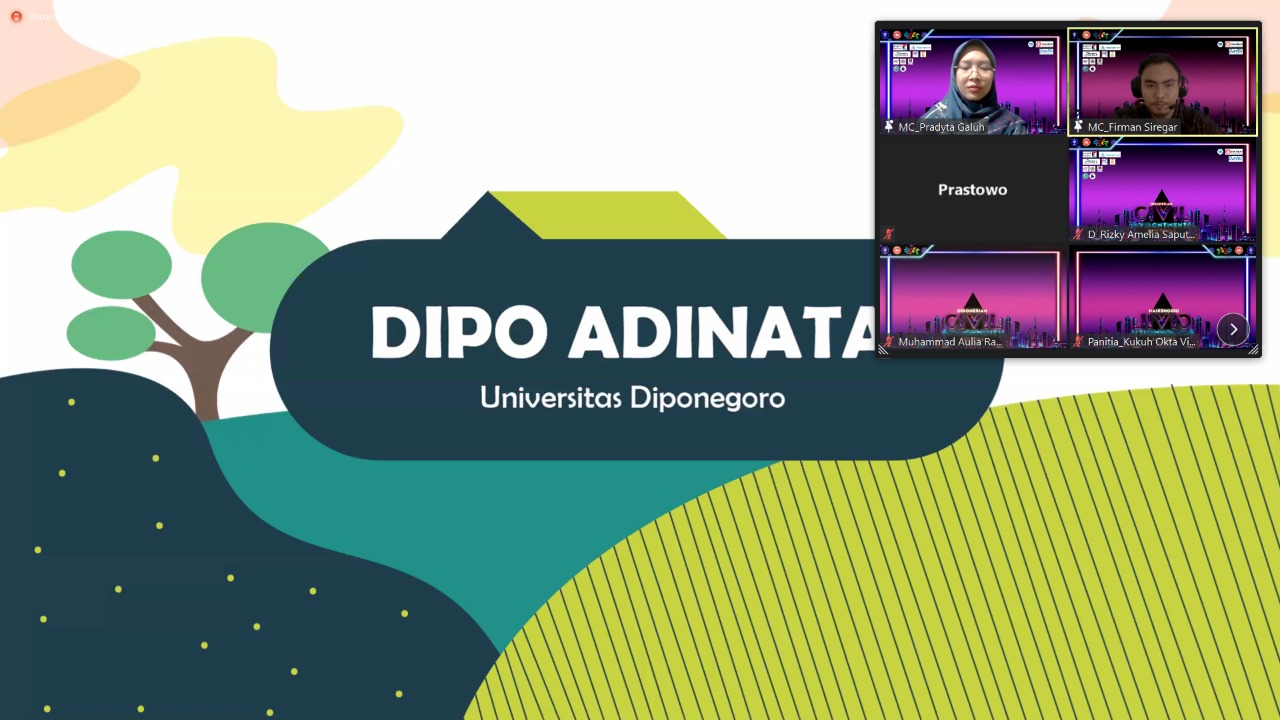[et_pb_section fb_built=”1″ _builder_version=”4.6.5″ _module_preset=”default”][et_pb_row column_structure=”1_2,1_2″ _builder_version=”4.6.5″ _module_preset=”default”][et_pb_column type=”1_2″ _builder_version=”4.6.5″ _module_preset=”default”][et_pb_image src=”https://pilar.vokasi.undip.ac.id/wp-content/uploads/2020/11/KONTEN-1.jpeg” title_text=”KONTEN 1″ _builder_version=”4.6.5″ _module_preset=”default”][/et_pb_image][et_pb_image src=”https://pilar.vokasi.undip.ac.id/wp-content/uploads/2020/11/DIPO-2.jpg” title_text=”DIPO 2″ _builder_version=”4.6.5″ _module_preset=”default”][/et_pb_image][/et_pb_column][et_pb_column type=”1_2″ _builder_version=”4.6.5″ _module_preset=”default”][et_pb_text _builder_version=”4.6.5″ _module_preset=”default” text_font=”Times New Roman||||||||” text_text_color=”#000000″ hover_enabled=”0″ sticky_enabled=”0″]
DIPO ADINATA, a group of three participants, namely Rizky Amelia Saptri Lay (D3 Civil Engineering UNDIP 2018), Rifqy Anggoro Senoputro (D3 Civil Engineering UNDIP 2018) and Tiara Retno Dewanti (D4 Civil Engineering and Architecture UNDIP 2019) from the Vocational School of Diponegoro University managed to occupy first place or first place in the Design competition held by the Bogor Agricultural Institute on August 25, 2020 by endorsing an idea with the emblematic “DESAGEL: Seawater Distillation Using Corn Cobs Waste as a Hydrogel with a Fast, Economical, and Environmentally Friendly Process. “This is obtained from various literature and certainly the relevance of the data. This innovation was assisted by a supervisor, namely Riza Susanti, S.T., M.T.
[/et_pb_text][et_pb_text _builder_version=”4.6.5″ _module_preset=”default” text_font=”Times New Roman||||||||” text_text_color=”#000000″ hover_enabled=”0″ sticky_enabled=”0″]
The Eco-village design is one of the ICEF 2020 series held by the Bogor Agricultural Institute nationally with the theme taken is Cheap Technology for the Provision of Clean Water to Coastal Communities. Carrying the Eco-village concept, this clean water supply technology, is not only cheap, but must meet aspects such as ecology, social, culture, and economy.
[/et_pb_text][et_pb_text _builder_version=”4.6.5″ _module_preset=”default” text_font=”Times New Roman||||||||” text_text_color=”#000000″ hover_enabled=”0″ sticky_enabled=”0″]
DESAGEL technology with the concept of distillation is designed in the form of a pyramid, where there is a solar panel on the right and left as a means of channeling solar energy which is then accommodated on the battery. Electric stove for heating. The lamp, fan and htydrogel made from corn cobs waste become a means of accelerating evaporation. This technology aims to make it easier for coastal communities to get clean water and of course it doesn’t take a long time
DESAGEL technology was created because many areas in Indonesia have quality surface water sources or ground water that do not qualify as drinking water. The lack of availability of clean water quantitatively is due to the fact that 97% of the water on earth is sea water, so that with a salt content of around 35000 mg / l, this water cannot be used immediately without prior treatment. In addition, the fresh water content is also decreasing due to sustainable development without paying attention to the environment so as to minimize rainwater catchment areas. . Especially what was reviewed by the DIPO ADINATA team was the problem of clean water in the coastal area of Tambak Lorok, Semarang.
[/et_pb_text][/et_pb_column][/et_pb_row][/et_pb_section]

